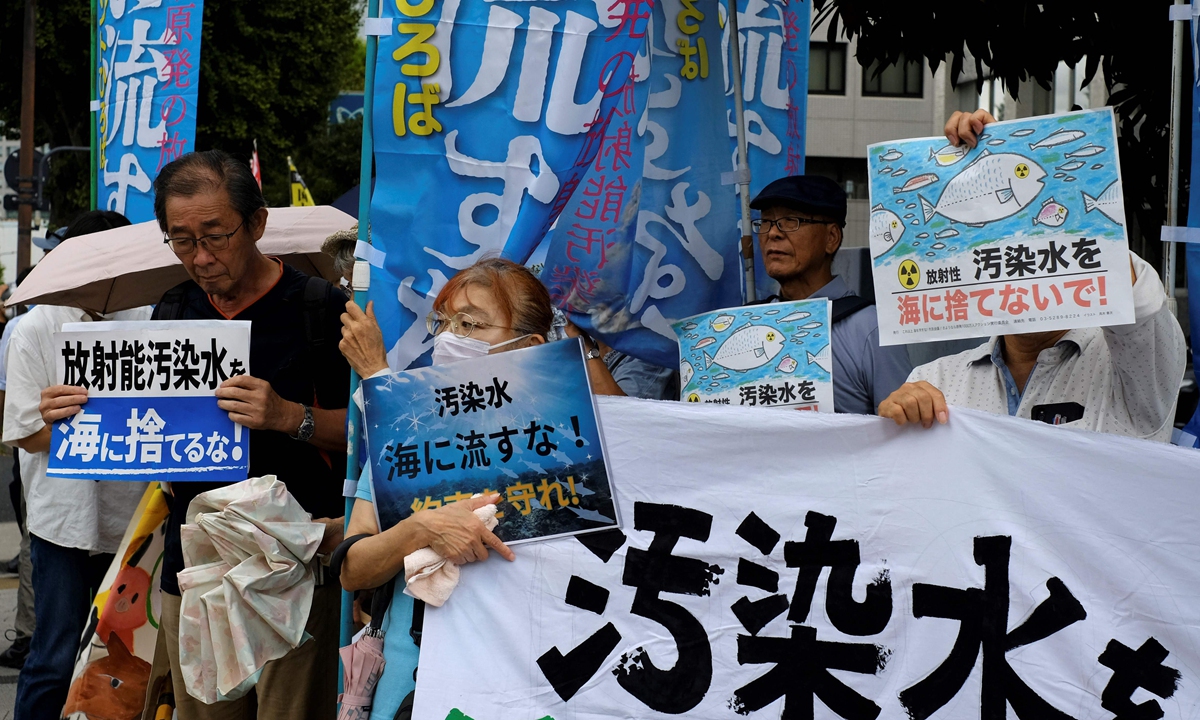
Japanese protesters hold signs reading "Don't throw radioactive contaminated water into the sea!" and "Don't throw polluted water into the sea," as they take part in a rally against the Japanese government's plan to dump contaminated wastewater from the crippled Fukushima Daiichi power plant into the ocean, outside the prime minister's office in Tokyo on August 22, 2023. Photo: VCG
A woman in traditional Chinese attire was asked to leave a park in Wuhan, Central China's Hubei Province after her clothes were reportedly mistaken for a Japanese kimono. The incident prompted online discussions over Japanese cultural symbols as well as "freedom of dress."
A net user posted a video online on Wednesday claiming she was advised by staff members in uniform to leave the park for wearing Japanese clothes. According to the video clips, the woman was wearing traditional Chinese clothes in the style of the Tang Dynasty (618-907), during which time Japan had frequent exchanges with and got inspiration from China in various aspects.
The post prompted controversy online, and the park management center later told the media they do not have a dress code for visitors.
The actions of the park staff were possibly fueled by Japan's irresponsible dumping of nuclear-contaminated wastewater into the ocean, some argued.
The China-Japan tension has made topics related to Japan more sensitive, and some have claimed that Japanese symbols such as clothes, food and cultural products are a kind of cultural infiltration.
Hu Xijin, a Chinese media professional, said this narrative overestimates the importance of Japan. Chinese society does not need to be allergic to Japanese elements and such a mentality should not dominate in interactions with Japan.
Others criticized the staff's behavior as a violation of "freedom of dress" and personal rights, which has become a heated topic online following a draft revision of China's law on public security.
A clause in the draft stipulated possible fines and detention of people wearing clothes that
"hurt the feelings of the Chinese nation." Some netizens, including many legal experts, have expressed concern that the revision could lead to excessive enforcement and abuse of power.




